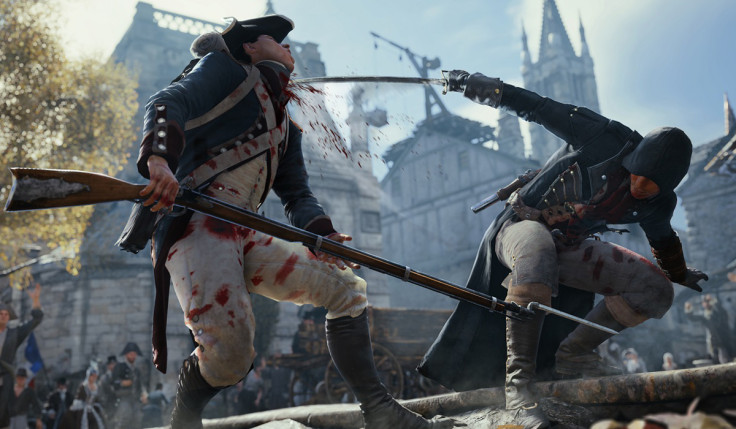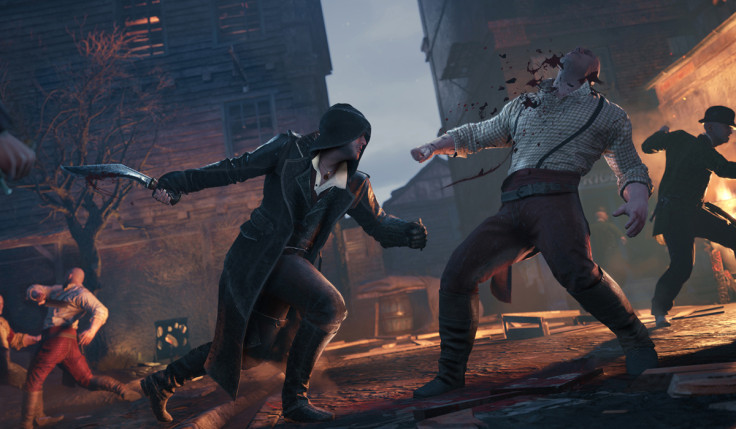Assassin's Creed should lose its excessive, pointless violence and target a younger audience

Excessive violence in video games is nothing new. It is as deeply rooted in the industry as carpal tunnel syndrome and awful energy drinks. Some games justify violence because they depict horrific scenarios, but in most games violence is used for the sake of it, or to appeal to gaming's most easy-to-please demographic.
Activision's Call of Duty and EA's Battlefield use violence to depict war, Rockstar's Grand Theft Auto is about awful criminals doing awful, violent things, and Bethesda's Fallout depicts a desperate dog-eat-dog bottle-cap economy in the post-apocalypse. Alien Isolation, The Walking Dead, Tomb Raider – the violence of each is born out of the settings and stories being told.
Assassin's Creed doesn't fall in the same bracket. Your first thought might be "what about all the assassinating?" and I would point to something like Pirates of the Caribbean, which hardly depicted the pirate lifestyle realistically. AC simply doesn't need its violent streak.
If Battlefield isn't bloody it's sanitising war and if The Last of Us isn't head-crushingly brutal you lose the sense of just how harrowing the setting is and how desperately Joel fights to survive it. If Assassin's Creed stops spilling so much blood, then what?
Even for a series about an age-old order of murderers, the level of violence is unnecessary. Each trailer and combat animation revels in death, gleefully depicting viscous stabbings with wide arches of gushing claret. Each action sequence is peppered with squelches and bloody gargles as foes fall. The noises of violent death engulf the game (for an example have a look at Syndicate in action in this video) and for what reason? Because that's just what popular games are supposed to be?

For me, Ubisoft's best-selling series should always have been a swashbuckling series about the thrill of high adventure, not stabbing people in the throat or crushing their head under a ship's wheel. Creed's two best leads - Ezio Auditore da Firenze and Black Flag's Edward Kenway - were cast in the same mould as boys-own adventurers like Indiana Jones, and the game is absolutely at its best when it's not taking itself seriously, having fun and not bogged down in dull-as-dishwater science fiction.
I'm not saying the series needs to don tights and emulate Errol Flynn's thigh-slapping antics, it just doesn't need to be an Eli Roth joint either. Video games are not like movies - it should go without saying that the two mediums stand separately (despite articles still being churned out comparing the sales of each) but in terms of target demographics and such, games can learn a thing or two.
Many games appeal to adults and are slapped with 18+ ratings, many others appeal to a young audience of around 7-12 years of age. The reasoning is that games are expensive so target adults either directly of via their children. There is still a huge gulf between those two groups however, and that same 13-17 age range is where Hollywood often sets its sights. The many young players belonging to that demographic play games meant for older audiences, like Call of Duty and yes, Assassin's Creed.
A game like Creed should slot perfectly in that range, without those playing it technically breaking the law. It would be in good company too. Halo 5: Guardians has become the first game in that series to receive a T-For-Teen rating, and it did it without compromising what the series is at its core.
The base concept of what Assassin's Creed is - an adventure through history with a mystic through-line and sci-fi inflections - is a better fit for a wider audience than it is for an adult one. It should be fun, and relish that sense of adventure that has given the series its high points.
For all the latest video game news follow us on Twitter @IBTGamesUK.
© Copyright IBTimes 2025. All rights reserved.


















